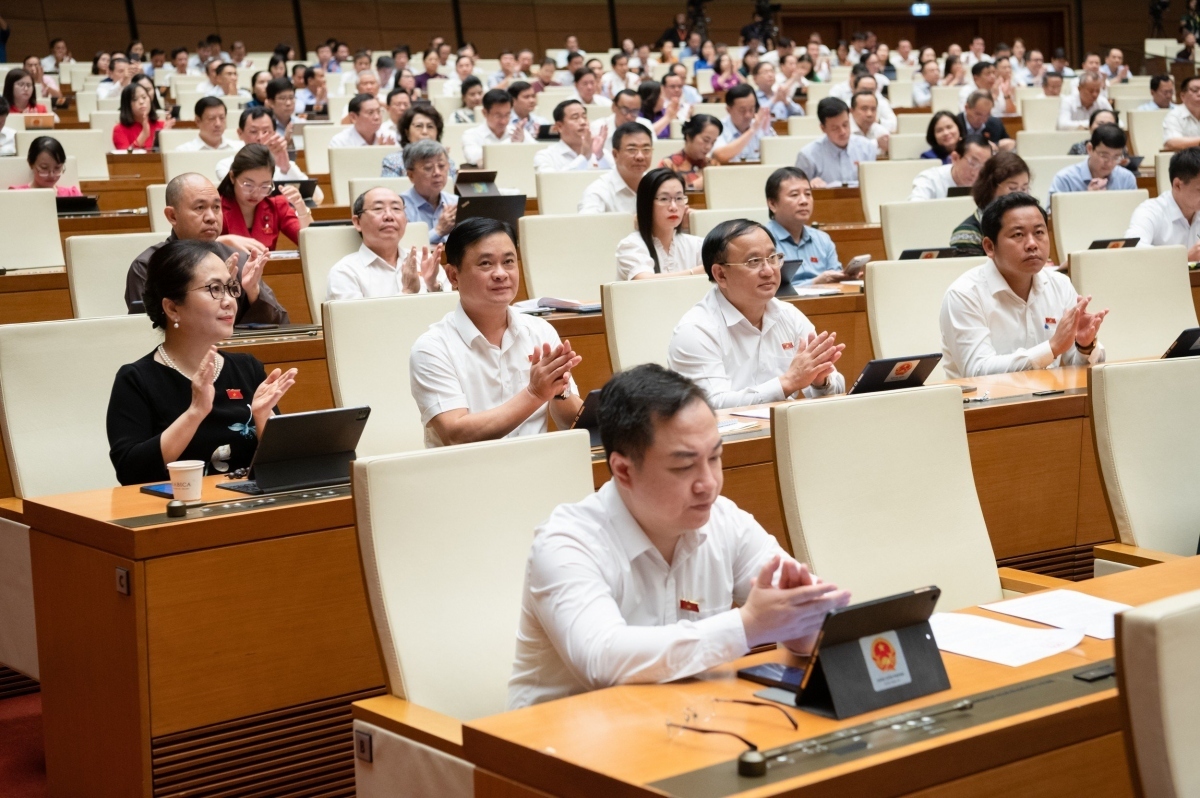New development policies for HCM City get lawmakers’ nod
VOV.VN - With a majority of votes in favour, the National Assembly on June 24 passed a resolution on specific development policies for Ho Chi Minh City, the country’s largest economic and financial hub.

These pilot policies are set to take effect from August 1. The Government will review the implementation of these policies and submit review reports to the National Assembly during its year-end sessions in 2026 and 2028.
The resolution seeks to introduce fresh policies on investment, budget-finance, land management, planning, and organisational structure for the southern metropolis. It also includes a number of policies specified in Resolution 54 for the city that ended in 2022, as well as specific mechanisms applied in other localities.
Under the endorsed resolution, the southern metropolis will be permitted to make use of the local budget in order to implement regional and inter-regional road projects. It will seek to carry out the transit-oriented development (TOD) model on a trial basis, support the conversion of vehicles using fossil fuels to clean energy, whilst encouraging the use of public transport to avoid congestion.
The city will be allowed to offer income tax exemptions and reductions to both individuals and firms involved in innovation and start-ups in science and technology.
Furthermore, it will also be permitted to decide on preferential mechanisms and policies aimed at attracting strategic investors in the fields of chip manufacturing, semiconductor integrated circuit industry, and new materials.
It will be green-lighted to expand investment projects under the Public-Private-Partnership (PPP) model in the fields of sports and culture. However, the passed resolution will not allow Ho Chi Minh City to use the increased budget revenue against the allocated amount for new public investment projects.
Most notably, the southern city will be allowed to pilot a financial mechanism aimed at reducing greenhouse gas emissions under the carbon credit exchange and offset mechanism. The municipal budget will therefore enjoy 100% of the revenue from carbon credit transactions.
The city will be given the privilege to decide on the number of deputy heads of the municipal government, as well as of wards, communes, and townships. It will be entitled to stipulate the election, recruitment, management, and employment of officials and civil servants working in communes, townships, and wards.
The southern metropolis will be allowed to establish a municipal food agency, a watchdog tasked with state management of food safety, inspection, and handling of administrative violations relating to food safety.
In 2017 the NA issued Resolution 54 with many specific mechanisms for Ho Chi Minh City in an attempt to drive the southern financial and economic hub forward.
However, the implementation of the resolution over the past year has failed to meet its own expectations due to obstacles faced by relevant ministries and agencies. The majority of the specific policies on financial management aimed at increasing revenue, such as the equitisation of State-owned enterprises and revenue from public asset auctions, have so far yet to be implemented.
If granted approval, the new resolution will help to remove bottlenecks occurring in social investment attraction and project procedures in the Ho Chi Minh City.
